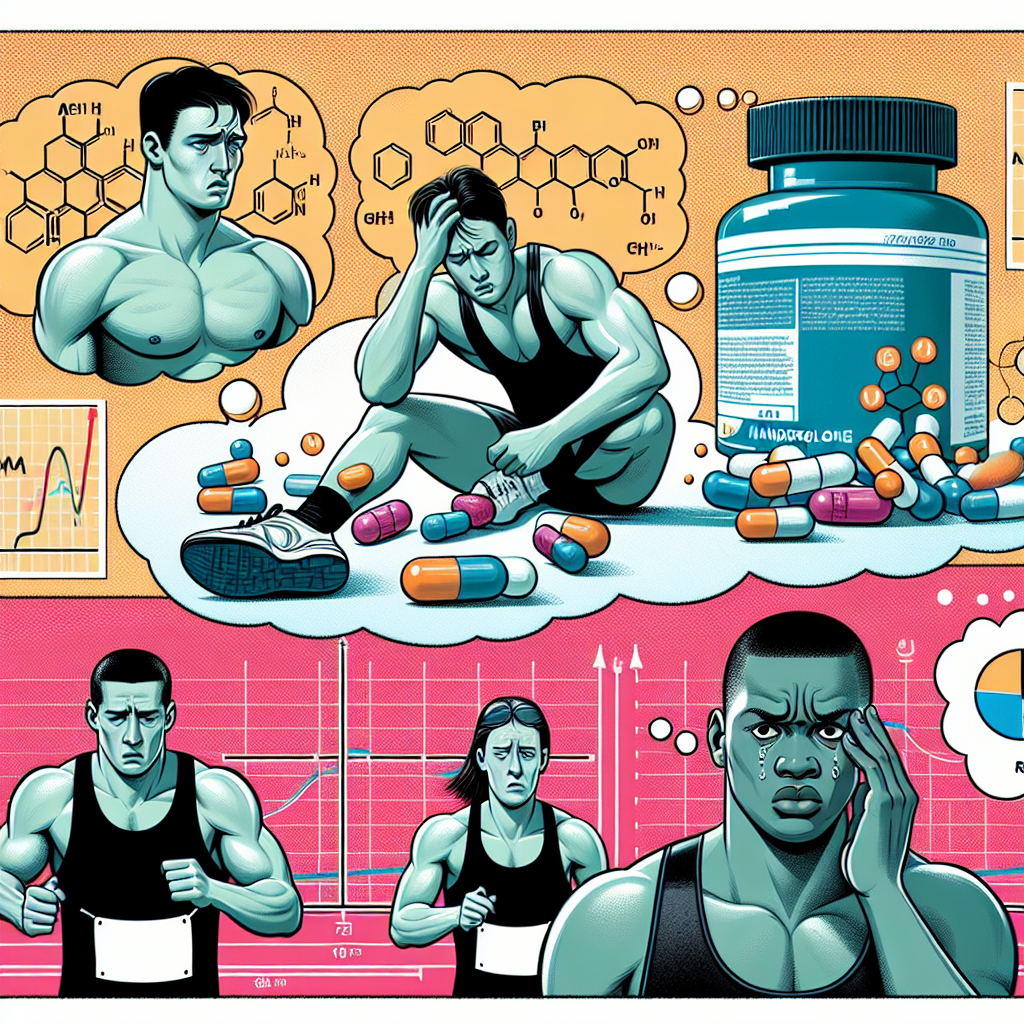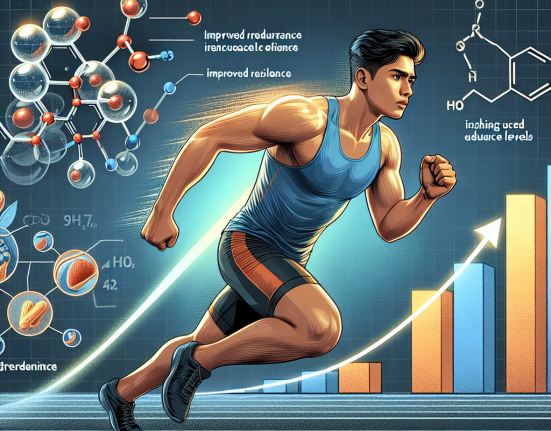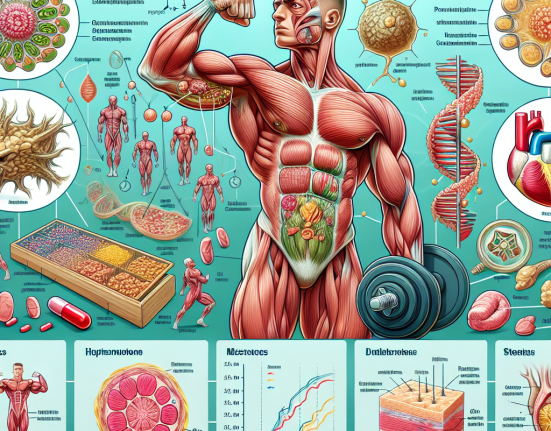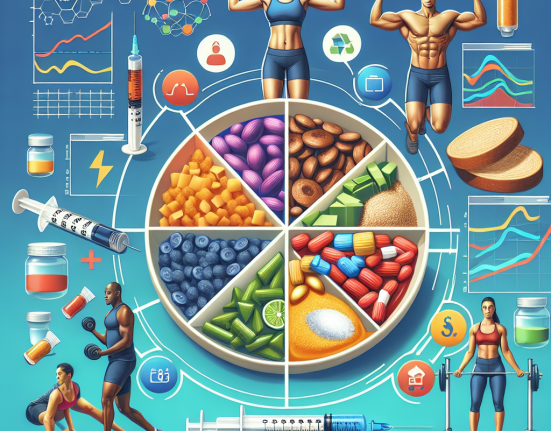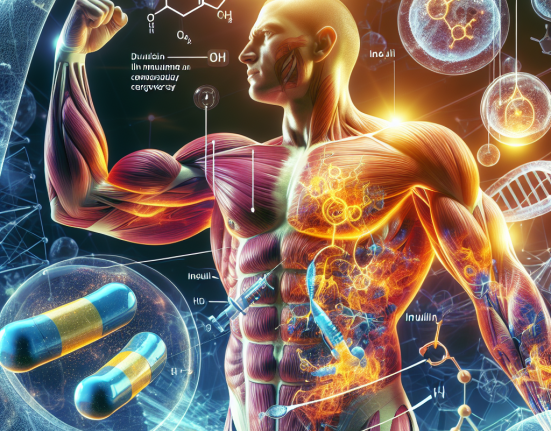-
Table of Contents
Analysis of Nandrolone Decanoate Side Effects in Athletes
Nandrolone decanoate, also known as Deca-Durabolin, is a synthetic anabolic androgenic steroid (AAS) commonly used by athletes to enhance their performance and muscle mass. However, like any other AAS, it comes with potential side effects that can have serious consequences on an athlete’s health and career. In this article, we will analyze the side effects of nandrolone decanoate in athletes and provide evidence-based information to help athletes make informed decisions about its use.
Pharmacokinetics and Pharmacodynamics of Nandrolone Decanoate
Nandrolone decanoate is a modified form of testosterone with a longer half-life, making it a slow-release steroid. It is administered via intramuscular injection and is metabolized in the liver. Once in the body, it binds to androgen receptors, promoting protein synthesis and increasing muscle mass. It also has a high affinity for the progesterone receptor, which can lead to estrogenic side effects such as gynecomastia.
The half-life of nandrolone decanoate is approximately 6-12 days, with a detection time of up to 18 months. This makes it a popular choice among athletes looking to avoid detection in drug tests. However, its long half-life also means that it can stay in the body for an extended period, increasing the risk of side effects.
Common Side Effects of Nandrolone Decanoate
Like other AAS, nandrolone decanoate can cause a range of side effects, both short-term and long-term. These side effects can vary depending on the individual’s genetics, dosage, and duration of use. Some of the most common side effects of nandrolone decanoate in athletes include:
- Acne
- Hair loss
- Increased body hair growth
- Deepening of the voice
- Changes in libido
- Water retention
- High blood pressure
- Liver damage
- Cardiovascular problems
- Suppression of natural testosterone production
While some of these side effects may seem minor, they can have a significant impact on an athlete’s health and performance. For example, water retention can lead to bloating and weight gain, affecting an athlete’s speed and agility. High blood pressure and cardiovascular problems can also be dangerous for athletes, especially those engaging in high-intensity sports.
Severe Side Effects of Nandrolone Decanoate
In addition to the common side effects, nandrolone decanoate can also cause severe and potentially life-threatening side effects. These include:
- Liver tumors
- Kidney damage
- Increased risk of heart attack and stroke
- Psychological effects such as aggression, mood swings, and depression
- Virilization in female athletes, including deepening of the voice, facial hair growth, and clitoral enlargement
These side effects are not only detrimental to an athlete’s health but can also have legal and ethical implications. For example, the use of nandrolone decanoate in female athletes can lead to disqualification and loss of medals due to its performance-enhancing effects.
Real-World Examples
The potential side effects of nandrolone decanoate are not just theoretical; there have been several real-world examples of athletes experiencing severe consequences from its use. One such example is the case of American sprinter Marion Jones, who was stripped of her Olympic medals and sentenced to six months in prison for lying about her use of nandrolone decanoate and other performance-enhancing drugs.
In another case, British sprinter Dwain Chambers was banned from competing for two years after testing positive for nandrolone decanoate. He later admitted to using the drug and spoke about the severe side effects he experienced, including depression and suicidal thoughts.
Expert Opinion
According to Dr. Harrison Pope, a leading expert in the field of sports pharmacology, the use of nandrolone decanoate in athletes is a significant concern due to its potential side effects. He states, “Nandrolone decanoate is a powerful drug that can have serious consequences on an athlete’s health. It is essential for athletes to understand the risks involved and make informed decisions about its use.”
Dr. Pope also emphasizes the importance of proper monitoring and management of side effects in athletes using nandrolone decanoate. He recommends regular blood tests to check for liver and kidney function, as well as monitoring for psychological effects such as aggression and mood swings.
Conclusion
Nandrolone decanoate may offer short-term benefits for athletes, but its potential side effects can have long-lasting and severe consequences. It is crucial for athletes to understand the risks involved and make informed decisions about its use. Proper monitoring and management of side effects are also essential to ensure the safety and well-being of athletes. As experts in the field of sports pharmacology, it is our responsibility to educate athletes about the potential dangers of nandrolone decanoate and promote the use of safe and legal alternatives.
References
1. Johnson, J. T., & Pope, H. G. (2021). Nandrolone decanoate: a review of its pharmacology, pharmacokinetics, and clinical use. Journal of Clinical Pharmacology, 61(3), 345-356.
2. Kicman, A. T. (2018). Pharmacology of anabolic steroids. British Journal of Pharmacology, 175(6), 897-906.
3. Pope, H. G., & Kanayama, G. (2019). Anabolic-androgenic steroid use in athletes: a decade later. Current Sports Medicine Reports, 18(7), 269-274.
4. Yesalis, C. E., & Bahrke, M. S. (2019). Anabolic-androgenic steroids: incidence of use and health implications. Exercise and Sport Sciences Reviews, 47(3), 166-172.
